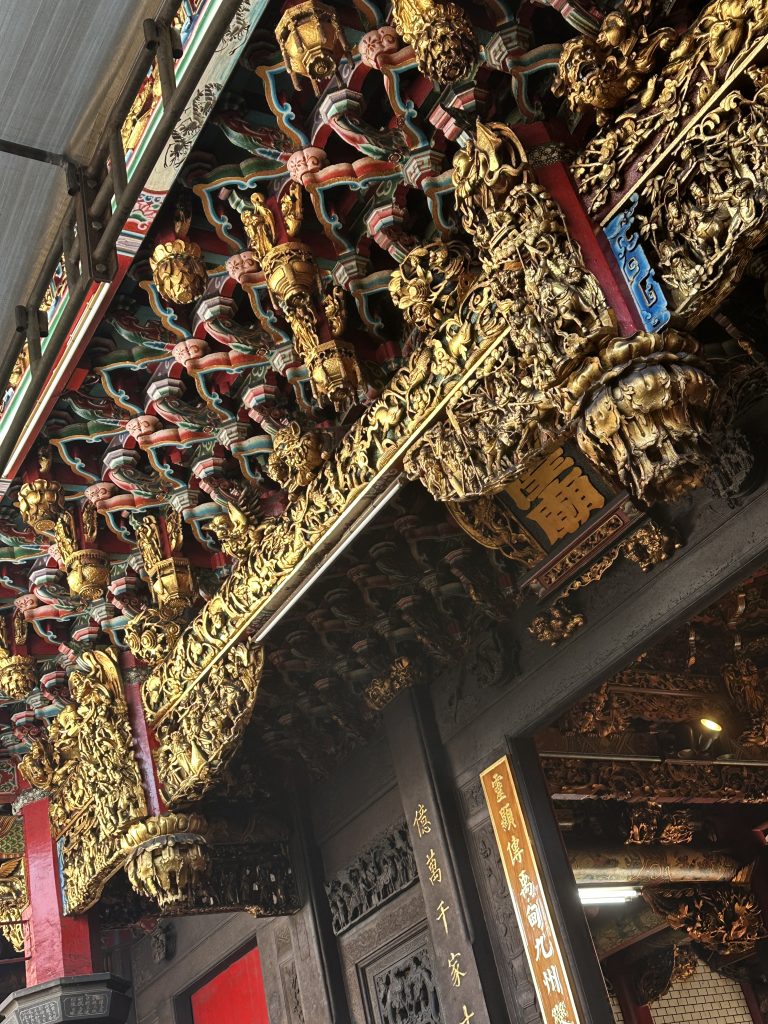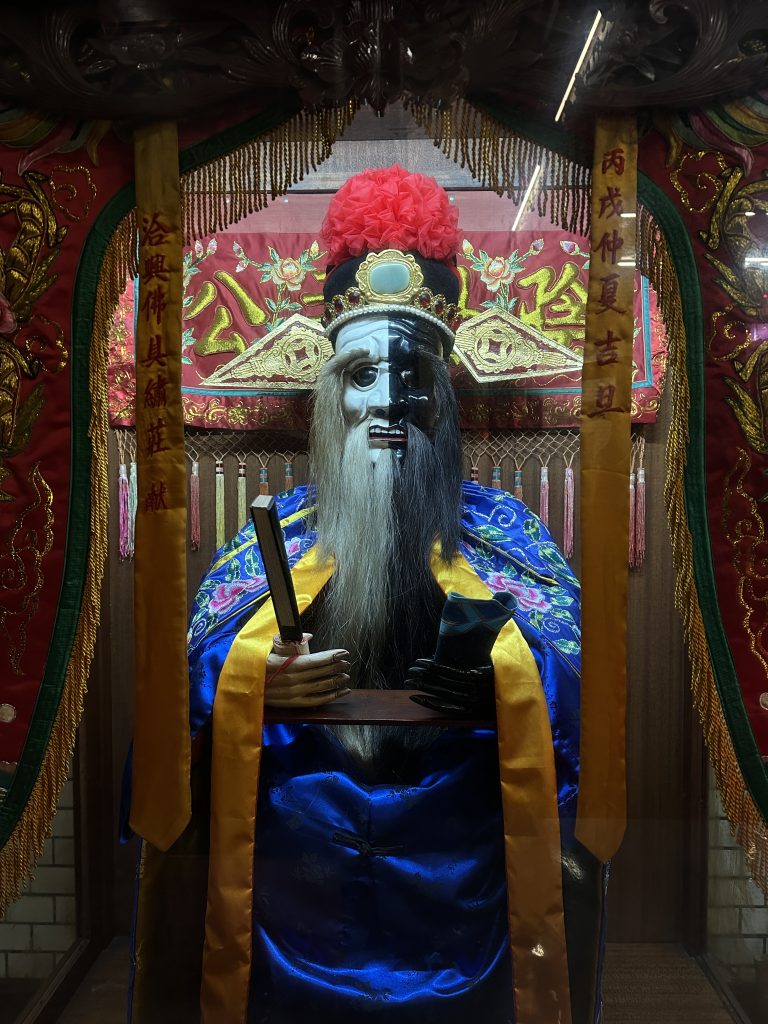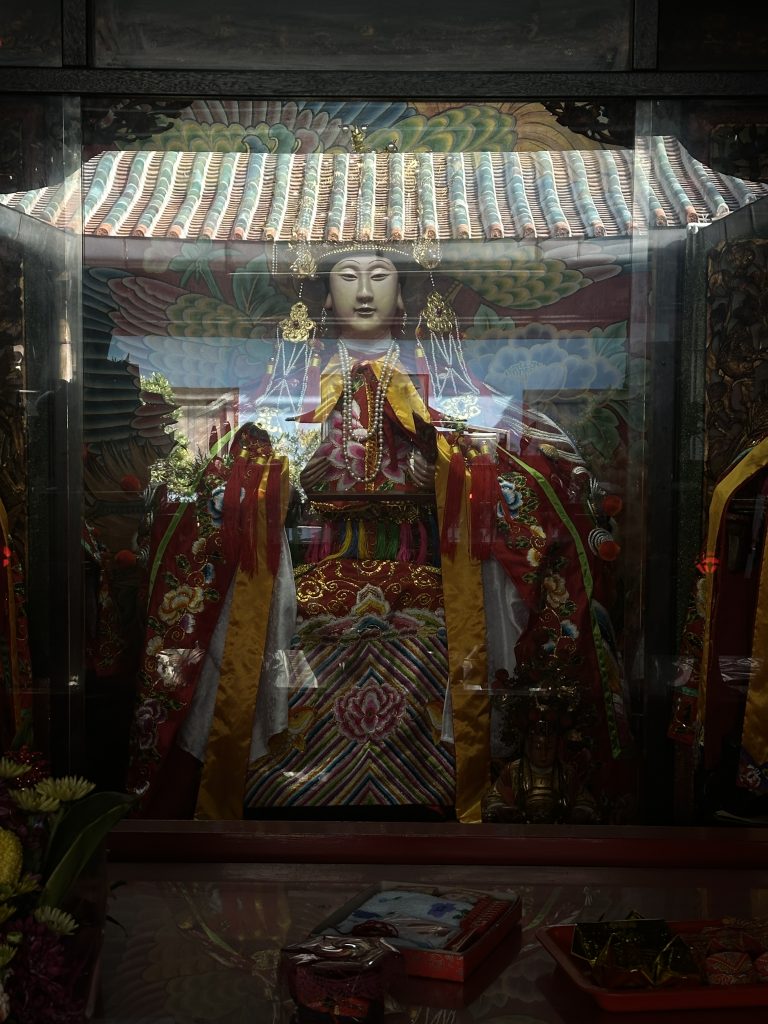On that day, we had the unique opportunity to visit a Chinese temple dedicated to one of the religions practiced in the region, Maoism. It was a fascinating experience that offered us insight into the rich cultural traditions and spiritual practices that differ significantly from those we might be more familiar with. One of the most striking differences was the way they worship their gods. Unlike monotheistic religions, Maoism involves the veneration of multiple gods, each representing specific aspects of life. For example, there is a god for marriage, another for fertility, one for property, and many others, each revered and approached for their unique blessings.
The temple itself was a beautiful and sacred space, imbued with a deep sense of history and reverence. Unlike Catholic temples, Chinese temples have strict customs and rules that visitors must follow to show respect. For instance, entry is only permitted through the right side of the temple, symbolizing the correct and auspicious path. Additionally, offerings are an integral part of worship. These offerings often take the form of groceries, such as fruits, rice, and other essentials, which are presented to the gods as tokens of gratitude or to seek their favor.
Another intriguing aspect of the visit was learning about the symbolic role of animals in their faith. Animals are seen as earthly manifestations of the gods, acting as their representatives to oversee and guide the faithful. This belief underscores the deep connection between humans, nature, and the divine in their spiritual worldview.
Overall, the experience was deeply enriching. It provided a rare glimpse into a different way of understanding and interacting with the divine, broadening our perspectives on faith and cultural diversity. It reminded us of the beauty and complexity of the world’s various spiritual practices, each offering its unique path to connection and meaning.



